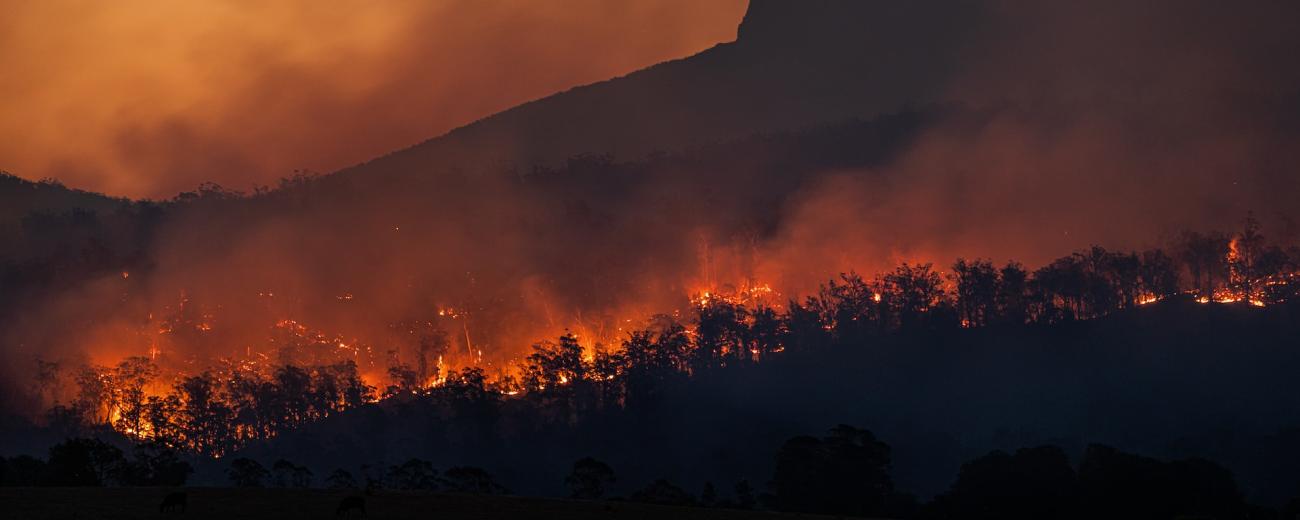Financial risk and the impact of climate change


Project Information
Principal Investigator
- Neil Robert Edwards (Open University)
Co-investigators
- Jean-Francois Mercure (University of Exeter)
- Philip Bernard Holden (Open University)
- Gregor Semieniuk (SOAS)
- Jorge Vinuales (University of Cambridge)
- Pablo Andres Salas Bravo (University of Cambridge)
Duration
2019–2020
Overview
In 2015, the Governor of the Bank of England issued a stark warning that both the impacts of climate change and those of climate policies could have pronounced effects on the UK's financial and insurance industries.
At the core of climate-related impacts, there is a dilemma: while climate policy seeks to avoid long-term physical damages from climate change, it may also negatively affect financial markets as the valuation of fossil fuel-related financial assets falls. Such assets could become effectively "stranded" by the transition to environmental sustainability. The financial risks arising from the transition and the stranding of fossil-fuel assets have been termed "transition risks".
The adoption of climate laws and policies, including the 2008 Climate Change Act in the UK, has supported the development and uptake of low-carbon technology, significantly reducing the demand for fossil fuels worldwide. This change in demand, together with the expectation of more stringent climate policies in the future, is rapidly changing the market outlook for fossil fuel-related industries and associated physical and financial assets. Companies could invest in oil wells, refineries or tankers that, in a scenario of low demand, may fail to generate the expected return and thus become stranded.
If the risk of asset devaluation is underestimated by investors, a climate bubble – which may already exist – could grow significantly, the bursting of which could lead to panic selling and a propagation of losses across the financial network, potentially triggering financial instability as severe or worse than that experienced worldwide in 2007.
This project aims to develop a robust characterisation, quantification and communication of climate-related transition risks, thus addressing a key objective of the UK Climate Resilience programme. To achieve this, we will improve and apply a set of software tools and a consultative analytical procedure to assess the risks to the UK's financial and economic stability of a rapid transition to a low-carbon economy, and its impact on the real economy, jobs and income.
We have recently developed a new computer model of the energy-economy-environment system uniquely well suited to this problem. The potential global loss in value of fossil-fuel assets we estimated to be $1-4tn, and its impact on the macroeconomy potentially twice as large. Our model represents the first of a new generation designed to assess the impacts of detailed climate policy packages on global and national economies. The model simulates the uptake of key low-carbon technologies in the most emissions-intensive sectors (power generation, road transport, household heating, industry and land-use).
To address the issue of financial contagion, triggered by fossil-fuel asset devaluation, we will map out the network of ownership of fossil-fuel assets to create a form of "fossil-fuel financial geography". Focusing on the largest privately and state-owned companies and covering most of the global value at risk, we will gather data on the distributions of both their physical fossil-fuel assets and the main investors in their financial assets, thus mapping the principal linkages between fossil-fuel assets and financial actors. Using this map, together with our modelling toolkit, we will explore the vulnerability and resilience of the UK's economy and financial sector, and investigate the magnitude and distribution of potential impacts.
Our ultimate goal is to identify and explore risks and assess strategies and responses that could reduce climate-related transition risks and improve the UK's economic resilience.
Planned impact
Stakeholders who will benefit from this research are primarily policymakers, companies involved in activities strongly associated with the fossil-fuel industry, and investors in those companies. Policymakers include central banks, notably the Bank of England, companies include, for instance, fossil-fuel companies and utilities, while investors include banks and institutional investors such as pension funds.
Policymakers will benefit from this work through improved knowledge of the financial risks associated with devaluation or 'stranding' of fossil-fuel assets arising through possible scenarios of emissions reductions, and on the resilience of the UK economy to such risks. They will also benefit from new information concerning options for policy-making to improve that resilience, that they can use to more effectively govern the transition. For instance, financial regulators can gain insights on the types of financial activity and the areas of the financial sector that could be at risk and accordingly design more effective policy responses.
Meanwhile, policymakers involved in industrial strategy and climate policy may gain insights on the unintended impacts that policy for decarbonisation can have on the value of financial assets, and use the information to mitigate potential negative outcomes. Finally, knowledge will be gained which will allow policymakers to implement approaches that could help mitigate the impacts of a possible bursting of the carbon bubble.
Companies will benefit through better knowledge of the possible scenarios of stranded fossil-fuel assets as decarbonisation progresses, according to various scenarios of climate policy. They could use these insights to better inform their own investment strategy. Investment funds, meanwhile, will gain through the potential to integrate improved methods and data for their own assessment of risk on investment, and to design informed strategies for an orderly divestment from fossil fuels that minimises loss of financial value to their shareholders. Banks will similarly be able to use the information and methods to reduce their exposure to financial risks associated with stranded fossil-fuel assets.
Notably, our partner ORTEC finance will use the information and data generated by this project to improve their existing analysis of their client companies' investment portfolios and help their clients minimise climate-related risks. ORTEC finance already uses data derived from our group's research, and have expressed interest in using updates on this data and new types of information that we could provide.
Impact will be generated firstly through the provision of quantitative tools for use by policy analysts, secondly through dialogue and knowledge exchange with policymakers and stakeholders. Here, we will use our accumulated experience to engage with the debate on financial transition risks, which is attracting a high level of interest both in the public and in policy circles. Knowledge exchange will be facilitated through workshops and discussions with policymakers and financial stakeholders from the UK and EU, with interests in climate policy, energy systems, labour markets, innovation and industrial strategy and the environment.
To establish our stakeholder community, we will build on our active links to UK policy advisers at the Department of Business, Energy and Industrial Strategy, at DG ENERGY, DG CLIMA and DG Employment at the European Commission. We will extend our engagement to debates regarding innovation, finance and financial stability, both in the UK and internationally, through our incipient contacts at the Bank of England and the European Investment Bank. Finally, we will engage with representatives of the private sector, including companies with high exposure to transition risks (for example, Shell, BP and other fossil-fuel companies, entrepreneurs and companies in which stranded fossil-fuel assets will be important), as well as investment funds.


